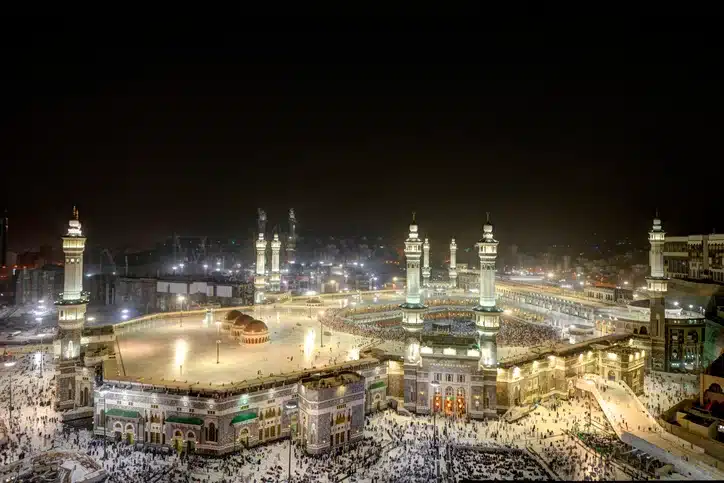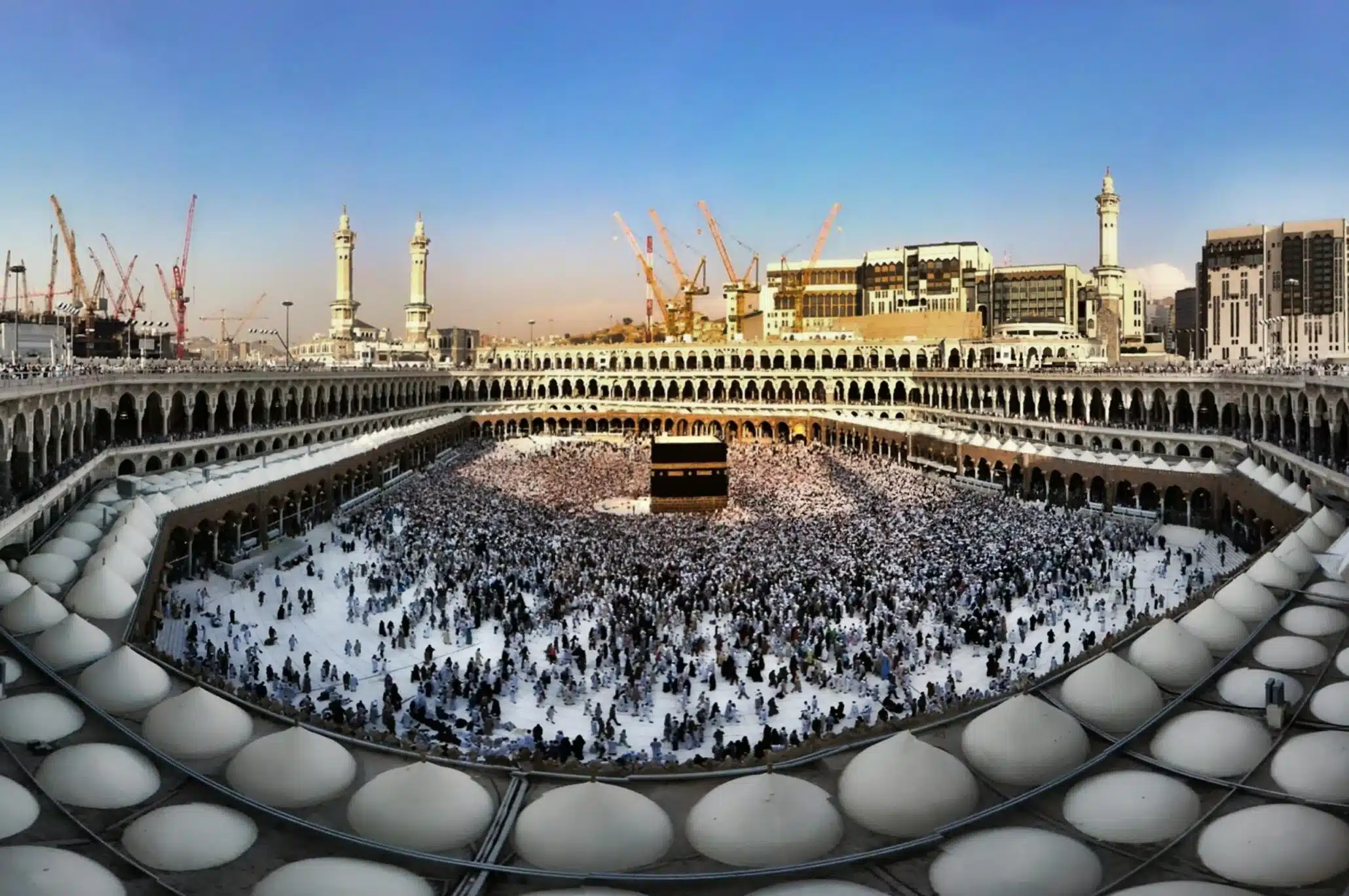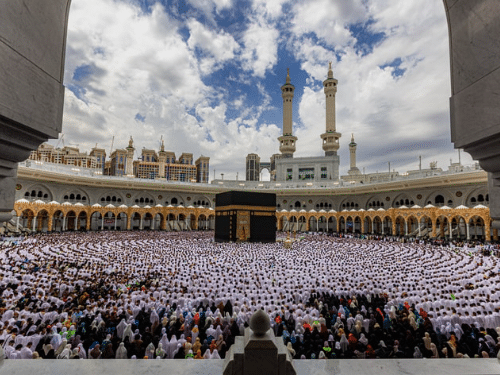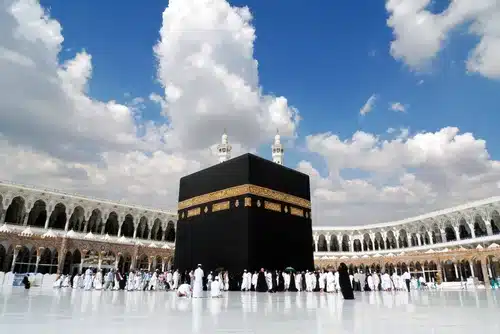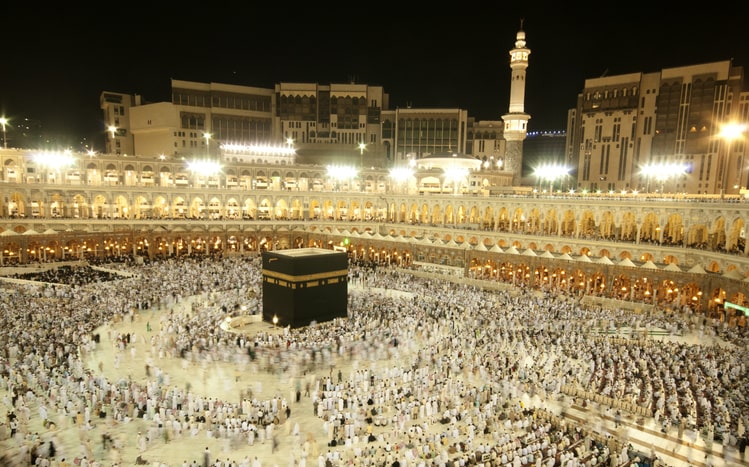The Importance and History of Hajr-e-Aswad (Black Stone) in Islam
The Hajr-e-Aswad (Black Stone) is the famous “Black Stone” in Islam that is located on one side of the Holy Kaaba, mystifying viewers with its unique and fascinating history. The Ziyarat of the Hajr-e-Aswad (Black Stone) is a part of the rituals of Hajj and Umrah with its heightened prominence. Hajr-e-Aswad (Black Stone) is one of the most important relics in Islam, having come from Paradise itself sent down by Allah Almighty. Its importance can be seen in the Sunnah of the Holy Prophet (P.B.U.H) who held and kissed the Black Stone.
History of the Hajr-e-Aswad (Black Stone)
The Black Stone holds great importance and prominence in the entire history of Islam. Hajr-e-Aswad, is situated on the southeast wall embossed in a silver structure of the house of Allah or Kaaba. There are several narrations that confirm the background of the Black Stone and tell of its respect and its importance in Islam.
Mentions of the History of the Hajr-e- Aswad (Black Stone) in Narration
According to an authentic narration, Hajr-e-Aswad (Black Stone) is the stone that was brought down to earth from Jannah and has been installed in Kaaba by Prophet Ibrahim (Allah’s blessings upon him) and his son Prophet Ismail (Allah’s blessings upon him).
With the information provided by the narration, that the Prophet Ibrahim and his son began to construct the Ka’aba by the orders of Allah Almighty. The place of Kaaba was ordered to be the place of sanctity and worship.
During the construction, a stone became short for building the walls. Prophet Ibrahim (Allah’s blessings upon him) ordered his son to find a stone to fill in the gap and finish the building. His son, Prophet Ismail (Allah’s blessings upon him), went searching for a stone but did not find any.
When Prophet Ismail came back to his father, he saw that there was already a stone placed in the gap. Upon his asking where the stone came from, Prophet Ibrahim told him that it was delivered by Gabriel (Jibrail).
A narration in the hadith book of Tirmidhi proves that Hajr-e-Aswad ( Black Stone) is a stone from heaven and was whiter than milk, but has turned steadily black due to the sins of the sons of Adam.
Importance of Hajr-e-Aswad (Black Stone) in Islam
Hajr-e-Aswad (Black Stone)’s importance can be seen in Hadith narrations, apart from it being the stone of paradise. Numerous hadiths of Prophet Muhammad ﷺ are related to Hajr-e-Aswad(Black Stone) and its importance for the Muslims and Islam.
Prophet Muhammad ﷺ said in a hadith:
“By Allah! On the Day of Qiyamah, Allah will present the Hajare Aswad in such a manner that it will have two eyes and a tongue to testify to the Imaan(faith) of all those who kissed it.” (Jame-e-Tirmidhi)
This wise Hadith shows that the act of kissing Hajr-e-Aswad (Black Stone) will be a witness for the faith of those who kissed it on the Day of Judgement.
On another occasion, Prophet Muhammad ﷺ said:
“The Hajre Aswad and al-Maqam(Ibrahim) are the two jewels from the jewels of Paradise. Had Allah not concealed their radiance, they would illuminate everything between the East and West.” (Jame-e-Tirmidhi)
This hadith also defines the importance of the Hajr-e-Aswad (Black Stone). Here not only the Black Stone is praised, but Prophet Ibrahim’s Maqam is also praised and called the jewels of heaven. Allah Almighty has hidden their radiance so that the world can remain in order and nature is not disturbed.
The Hajr-e-Aswad (Black Stone) has a lot of significance in Islam, being one of the precious few relics that have come from Paradise. Its importance has been mentioned in the hadiths of the Holy Prophet, with the Hajr-e-Aswad (Black Stone) a witness on the Day of Judgement about the faith of every person who kissed it.






